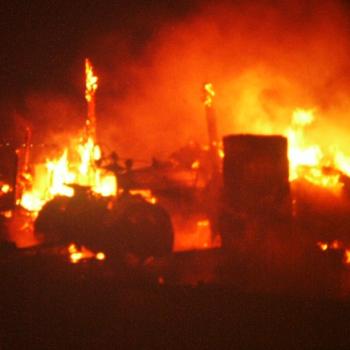This video is longer than the videos I usually put up. But if you’re a Christian, you need to see it.
Dr George Yancey presents research he’s done on anti-Christian bias in academia. He is the author of Too Many Christians, Too Few Lions.
I’ve gotten emails from faculty at various universities down through the years that express the same sentiments he found among academicians in his research. Despite that, I was still a little shocked at the raw and obvious hatred in the things he uncovered.
It’s also interesting that the bias against Christians and the acceptance of hate speech directed at Christians is so accepted that he had to juxtapose it with an illustration of putting the same kind of language in sentences that were about Jews to make his point. Presumably, if he had just left the statements stand as attacks on Christians, his audience would either have thought they were funny or otherwise failed to see the problem with them.
What his research uncovered is a bias in academia, presumably mostly in higher ed, against hiring evangelical or fundamentalist Christians in the first place, and a culture where members of this intellectual elite feel free to express hate speech against Christians in writing. He also documented biased research that is designed to show that Christians are less intelligent than others, atheists in particular. He demonstrates that the research biased in how it is constructed.
One point he fails to mention is that to try to make assumptions about the intelligence of a group of people based on something like religious preference is illogical in the first place. The existence of the research itself points to a bias of some sort. The method used in this “research” to try to determine intelligence would be faulty, even if the questions themselves were not constructed to get a biased result. There’s no way that these kinds of questions can determine intelligence.
The comments on this presentation had one that was certainly familiar to me. I’ve seen this kind of claptrap a lot. Here it is:
There should be an anti-christian bias in academia
as well as an anti Go bias
or an anti stupid bias
an anti make-believe bias
etc.
In other words, yes I discriminate and I should. Academicians not only teach our young people, but they teach the future teachers of our young people. Bias of this sort in academia is a serious problem. It is an institutional means of disseminating discrimination, prejudice and hatred throughout our whole society. I believe it is one of the major reasons for the sudden increase in religious bigotry and Christian bashing in America today.
Here’s the video.












